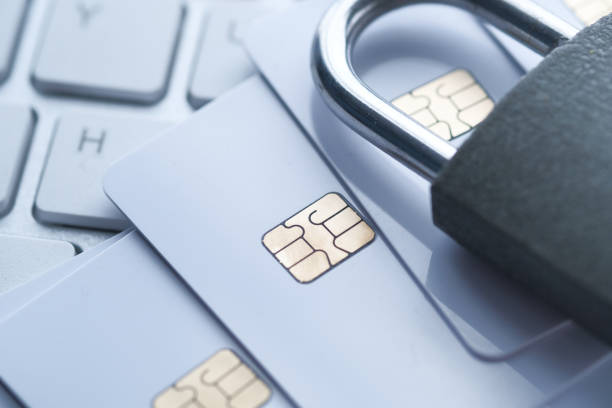The real estate industry is no stranger to complexity. From the labyrinthine paperwork to the myriad parties involved, mortgage transactions can be cumbersome and prone to errors. Enter smart contracts—a technological innovation set to revolutionize how mortgages are processed. Leveraging blockchain technology, smart contracts promise to streamline transactions, reduce errors, and increase transparency. Let’s delve into how these digital agreements are transforming the mortgage landscape.
Table of Contents
ToggleWhat Are Smart Contracts?
Smart contracts are self-executing contracts with the terms of the agreement directly written into lines of code. These contracts run on blockchain platforms, which are decentralized and immutable, meaning once data is recorded, it cannot be altered without consensus from the network. Smart contracts automatically enforce and execute the terms of an agreement when predefined conditions are met.
1. Automated Execution
One of the standout features of smart contracts is their ability to execute transactions automatically. For mortgages, this means that once all conditions of the contract are fulfilled—such as verification of buyer information, confirmation of funding, and completion of legal requirements—the smart contract can automatically trigger the disbursement of funds and transfer of property titles.
For example, if a borrower meets all the stipulated conditions (like paying a deposit and providing proof of insurance), the smart contract can automatically release the mortgage funds to the seller. This eliminates the need for manual intervention and speeds up the closing process.
2. Immutable Record Keeping
Smart contracts are built on blockchain technology, which provides an immutable ledger. This means that once a transaction is recorded, it cannot be changed or tampered with. This feature ensures that all parties involved in a mortgage transaction have access to the same, unalterable records.
This immutability is particularly valuable for preventing fraud and ensuring that all contract terms are adhered to. For example, if a property’s title is transferred, the blockchain record will reflect this change permanently, reducing the risk of disputes over ownership.
Simplifying Mortgage Transactions with Smart Contracts
Smart contracts can address many of the traditional challenges associated with mortgage transactions, making the process more efficient and less error-prone.
1. Reducing Paperwork and Administrative Costs
Traditional mortgage transactions involve extensive paperwork and numerous administrative tasks. Smart contracts streamline this process by digitizing the terms of the agreement and automating key functions.
With smart contracts, the need for physical documents is minimized. Instead of manually managing stacks of paperwork, all necessary documents can be stored and verified on the blockchain. This reduces administrative costs and accelerates the overall transaction process.
2. Minimizing Human Error
Human error is an inherent risk in any manual process, including mortgage transactions. Errors in data entry, miscommunication, and missed deadlines can cause delays and complications. Smart contracts mitigate these risks by automating the execution of contract terms based on predefined criteria.
For example, if a mortgage payment is due, the smart contract can automatically initiate the transfer of funds from the borrower’s account to the lender’s account on the due date. This minimizes the risk of missed payments and ensures timely transactions.
3. Enhancing Transparency and Trust
Transparency is a critical component of any financial transaction. Smart contracts provide a transparent and auditable trail of all contract activities. All parties involved in a mortgage transaction can access the same information, which fosters trust and ensures that everyone is on the same page.
This transparency also facilitates easier dispute resolution. If a disagreement arises, the blockchain ledger provides a clear, immutable record of all contract-related activities, helping to resolve disputes quickly and fairly.
Real-World Applications of Smart Contracts in Mortgages
Several real-world applications demonstrate how smart contracts are being used to improve mortgage transactions.
1. Streamlined Home Buying
Some innovative companies are already implementing smart contracts to streamline the home buying process. These platforms use smart contracts to handle everything from verifying the buyer’s eligibility to managing escrow accounts and transferring property titles.
For example, a smart contract might automatically verify a buyer’s credit score, confirm the availability of mortgage funds, and release payment to the seller once all conditions are met. This end-to-end automation simplifies the buying process and reduces the time to close.
2. Improved Loan Servicing
Smart contracts can also enhance the servicing of existing loans. Automated payment schedules, real-time updates on account status, and instant adjustment of payment terms based on predefined conditions are all possible with smart contracts.
For instance, if a borrower makes an extra payment, the smart contract can automatically adjust the loan balance and update the payment schedule. This ensures accurate account management and helps borrowers stay on top of their loan obligations.
Challenges and Considerations
While the benefits of smart contracts are significant, there are also challenges to consider:
1. Regulatory Compliance
The regulatory landscape for smart contracts and blockchain technology is still evolving. Ensuring that smart contracts comply with local and international regulations is essential for their widespread adoption.
Lenders and borrowers must stay informed about legal requirements and work with legal experts to ensure that smart contracts meet all regulatory standards.
2. Technology Integration
Integrating smart contracts with existing mortgage systems can be complex. It requires coordination between various stakeholders, including lenders, real estate agents, and legal professionals. Ensuring seamless integration and interoperability is crucial for the successful implementation of smart contracts.
3. Data Security
While blockchain technology is known for its security, it is not immune to vulnerabilities. Ensuring the security of data stored on the blockchain and protecting against potential cyber threats is essential.
Conclusion: The Future of Mortgage Transactions with Smart Contracts
Smart contracts represent a significant advancement in the mortgage industry, offering a range of benefits from automated execution and reduced paperwork to enhanced transparency and minimized errors. By leveraging blockchain technology, these digital agreements streamline the mortgage process, making it more efficient and reliable.
As the adoption of smart contracts grows, it will be crucial to address regulatory, integration, and security challenges to fully realize their potential. Embracing these innovations promises a future where mortgage transactions are faster, more accurate, and more transparent—setting new standards for the industry and improving the home-buying experience for all parties involved.

